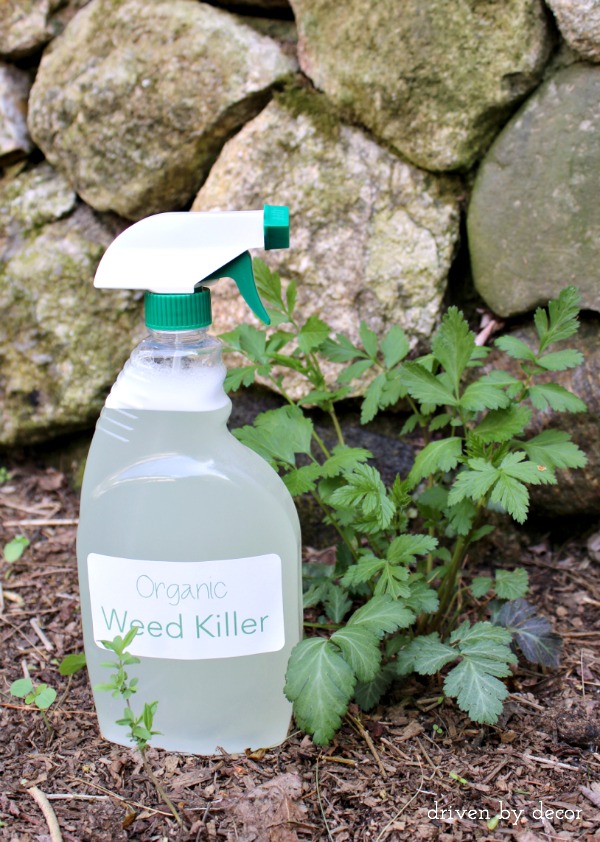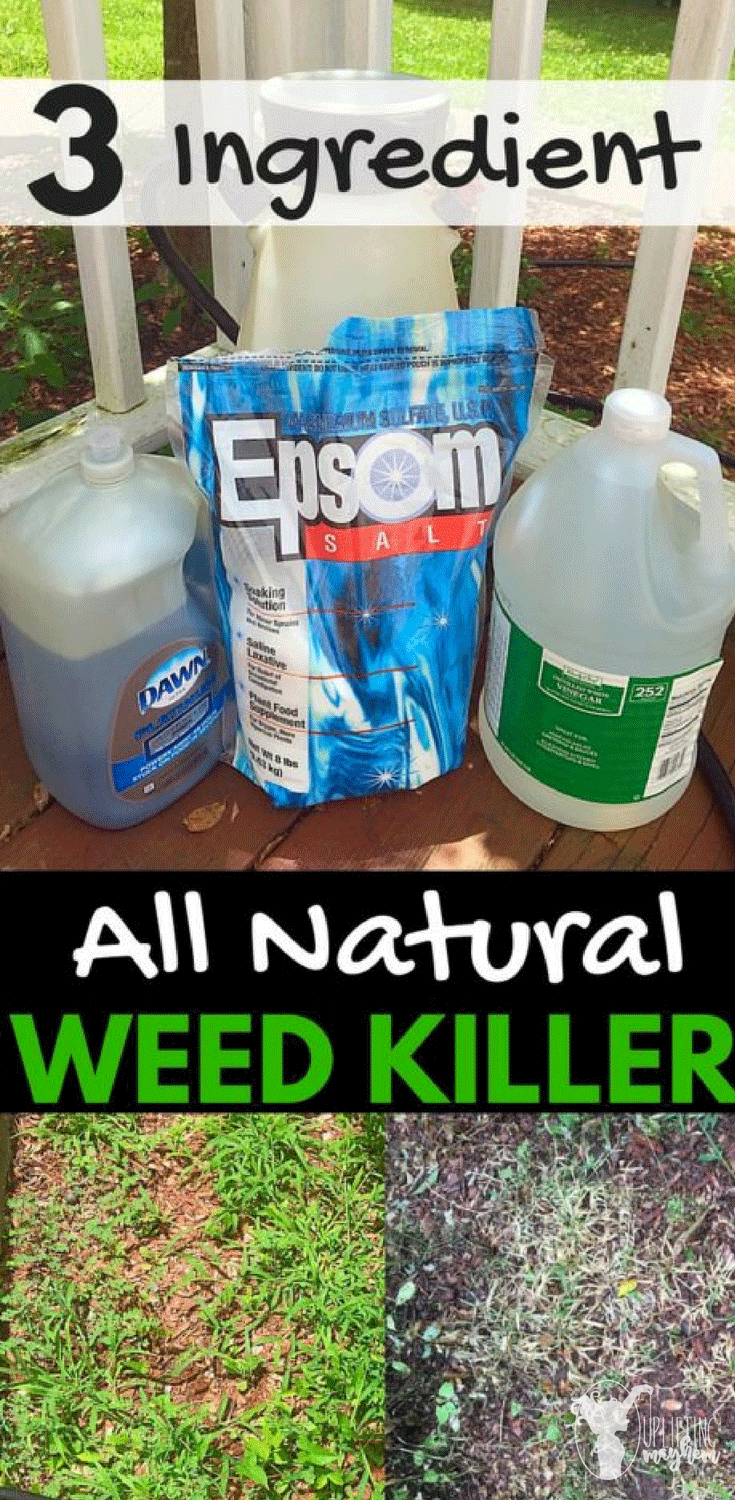Natural Weed Killer Guide: Organic Solutions & Tips!
Are you tired of seeing your meticulously planned garden overrun by unwelcome weeds? The solution lies in harnessing the power of nature itself, transforming your approach to weed control with effective organic solutions.
The relentless battle against weeds is a universal struggle for gardeners. Those persistent invaders compete with our prized plants for vital resources like sunlight, water, and nutrients, ultimately hindering their growth and diminishing the beauty of our outdoor spaces. For decades, conventional wisdom has leaned heavily on synthetic herbicides, powerful chemicals designed to eradicate weeds with ruthless efficiency. However, mounting concerns about the environmental impact and potential health risks associated with these industrial pesticides have fueled a growing movement toward more sustainable and eco-conscious gardening practices. This shift in perspective has led to a surge in the popularity of organic weed killers, offering a gentler, yet effective, alternative to traditional chemical warfare.
| Category | Details |
|---|---|
| Type | Organic Weed Control Methods |
| Key Methods | Mulching, Natural Weed Killers (Vinegar, Salt, Lemon Juice) |
| Benefits | Environmentally friendly, safe for beneficial insects, improves soil quality |
| Limitations | May require more frequent application, effectiveness varies by weed type |
| Related Information | Organic Consumers Association |
These natural weed suppression solutions are gaining traction as gardeners seek to minimize their impact on the environment while still maintaining healthy and thriving gardens. One of the most compelling advantages of organic weed killers is their composition. They typically derive from natural sources, utilizing ingredients like vinegar, salt, citrus, essential oils, and even carefully selected microorganisms to disrupt weed growth. This stands in stark contrast to synthetic herbicides, which often contain harsh chemicals like glyphosate, known for their potential to harm not only weeds but also beneficial insects, soil microorganisms, and even human health.
- 9xmovies In 2025 Risks Alternatives The Future Of Streaming
- Mia Khalifa Beyond The Label Her Untold Story And Future
The beauty of organic weed control extends beyond its environmental friendliness. Many of these methods can actually enhance soil health. For instance, organic mulches, as they decompose, enrich the soil with valuable nutrients and improve its structure, creating a more favorable environment for desirable plants to flourish. Furthermore, some organic weed control strategies can promote biodiversity in the garden. By avoiding broad-spectrum pesticides that indiscriminately kill all insects, gardeners can create a habitat that supports beneficial insects, such as pollinators and predators, which play a crucial role in maintaining a healthy ecosystem.
Among the most effective organic weed control methods, strategic mulching stands out as a powerhouse technique that\u2019s both simple and sustainable. Mulching involves applying a layer of organic material, such as shredded wood, leaf litter, pine bark, straw, or grass clippings, around your plants. This layer acts as a physical barrier, blocking sunlight from reaching weed seeds and preventing them from germinating. In addition to suppressing weed growth, mulching offers a multitude of other benefits. It helps to retain soil moisture, reducing the need for frequent watering, and it regulates soil temperature, protecting plant roots from extreme heat and cold. As the mulch decomposes, it adds organic matter to the soil, improving its fertility and structure over time.
To maximize the effectiveness of mulching, it\u2019s crucial to apply it correctly. You\u2019ll want to apply a 2.5 to 5 cm layer of mulch, ensuring complete coverage while keeping it away from plant stems. A common mistake is piling mulch directly against the stems, which can create a moist environment that encourages rot and disease. Instead, leave a small gap around the stems to allow for proper air circulation. The type of mulch you choose can also impact its effectiveness. Coarse materials like shredded wood and pine bark tend to last longer and provide better weed suppression, while finer materials like grass clippings decompose more quickly and need to be replenished more frequently. Organic mulches like bark, wood chips, straw, and grass clippings block light and prevent weed germination while improving soil quality.
- Friv 99 Games Play Top Friv Games Online Year Safe
- Unveiling Odia Mms Viral Trends Impact Amp Social Concerns Now
Beyond mulching, there are a variety of other organic weed control methods to explore. Homemade weed killers using vinegar, salt, and soap are gaining popularity as safe and effective alternatives to chemical herbicides. Vinegar, in particular, contains acetic acid, which can damage weed foliage and disrupt their growth. Salt acts as a desiccant, drawing moisture out of the weeds and causing them to wither. Soap helps to break down the waxy coating on weed leaves, allowing the vinegar and salt to penetrate more effectively. However, it\u2019s important to note that these homemade solutions can also harm desirable plants if not used carefully.
An organic weed killer is a natural, effective way to eliminate unwanted weeds without relying on harsh chemicals like glyphosate. Switching to a natural alternative like vinegar, salt, and soap means you can keep your garden healthy while still taking down weeds efficiently. The ultimate natural weed killer involves a combination of readily available household ingredients. First on the list of strong homemade weed killers is vinegar! While many people may not know this, vinegar is an effective weed killer due to the fact that it contains acetic acid, which can attack weeds and kill them very effectively. These types of weed killers usually come from organic sources & are less harmful to beneficial insects & plants.
You might find ingredients such as essential oils, citric acid, or even homemade vinegar mixes as suitable options. Lemon juice and salt combine to create a naturally acidic and desiccating weed killer that is both simple and effective. This DIY solution leverages the natural citric acid found in lemons, which is native to south asia. It comes ready to use and should be sprayed full strength on weeds. However, it\u2019s important to note that even natural weed killers can harm desirable plants if not used correctly and can be toxic if consumed, so always read and follow the label instructions carefully.
Another intriguing approach to organic weed control involves harnessing the power of beneficial microorganisms. Certain types of bacteria and fungi can selectively target and kill weeds without harming desirable plants. These bioherbicides are typically applied as a spray or granule and work by disrupting the weed's cellular processes or weakening its defenses, ultimately leading to its demise. While bioherbicides are generally considered safe for the environment, it\u2019s essential to choose products that are specifically formulated for your region and the types of weeds you're trying to control.
Weeds in your garden are bad news, and so is their treatment plan if it involves industrial pesticides that wreak havoc on our environment and our natural food chain. In response to the growing demand for sustainable gardening practices, organic weed killers have emerged as a powerful alternative to traditional and highly toxic pesticides. These natural weed suppression solutions, known for their gentle yet effective approach, are transforming the way we manage unwanted plants in our gardens and landscapes. They can also enhance soil moisture levels through shade and organic matter.
Interestingly, weeds can sometimes act as a natural pest control method. They can attract beneficial insects that prey on pests, which minimizes the need for chemical interventions in gardening. Furthermore, their presence can disrupt pest life cycles, reducing infestations. Despite the potential benefits, unchecked weed growth can quickly overwhelm a garden, outcompeting desirable plants for resources and creating an unsightly mess.
When using vinegar weed killer, remember its limitations. Vinegar typically acts as a contact herbicide, meaning it only affects the parts of the plant it directly contacts, says Elworthy. This means that you'll need to thoroughly coat the weed foliage for it to be effective. Additionally, vinegar is most effective on young, actively growing weeds. Mature weeds with established root systems may require multiple applications or a stronger concentration of vinegar to be effectively controlled. While many people may not know this, vinegar is an effective weed killer due to the fact that it contains acetic acid, which can attack weeds and kill them very effectively. Even though these chemicals are deemed \u201csafe for use,\u201d many people prefer to go down the natural route to get rid of weeds.
Ultimately, the best approach to organic weed control involves a combination of strategies tailored to your specific garden and the types of weeds you're dealing with. By embracing mulching, homemade weed killers, bioherbicides, and other natural techniques, you can create a healthy and thriving garden without resorting to harmful chemicals. This approach not only protects the environment but also promotes a more sustainable and enjoyable gardening experience.
The key to successful organic weed control is consistency and patience. Unlike synthetic herbicides, which often provide quick and dramatic results, organic methods may require more time and effort to achieve the desired outcome. However, the long-term benefits of a healthy, sustainable garden are well worth the investment. By adopting a proactive approach to weed management and utilizing a variety of organic techniques, you can create a beautiful and thriving outdoor space that is both environmentally friendly and a joy to behold.
As the demand for sustainable gardening practices continues to grow, the development and availability of organic weed control products and techniques are likely to expand. This will provide gardeners with even more options for managing weeds in an environmentally responsible manner. From innovative bioherbicides to advanced mulching technologies, the future of weed control is undoubtedly leaning towards a more natural and sustainable approach.
Embracing organic weed control is not just about eliminating unwanted plants; it's about fostering a healthier ecosystem and contributing to a more sustainable future. By making informed choices about the products we use and the practices we employ, we can create gardens that are not only beautiful but also beneficial to the environment and our own well-being.
So, ditch the harsh chemicals and embrace the power of nature to transform your garden into a weed-free paradise. With a little knowledge, patience, and a commitment to sustainable practices, you can achieve a thriving and beautiful outdoor space that is both environmentally friendly and a source of personal satisfaction.
- Diva Flawless Onlyfans Inside Her Explicit Content World
- Jimmy Kimmels Huge Pay Salary Net Worth More

3 Ingredient Organic Weed Spray (That Works!) Driven by Decor

17 Homemade Organic Weed Killer Tips & Recipes

3 Ingredient Natural Weed Killer Homemade Weed Killer Recipe